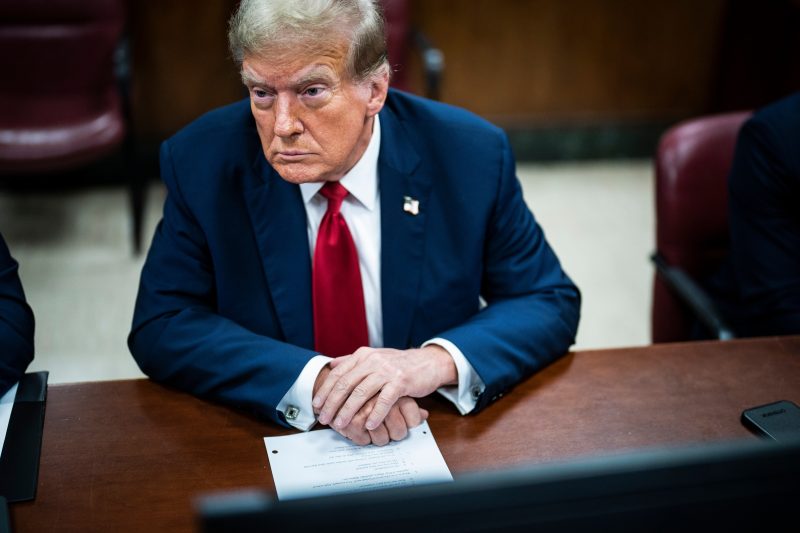In the realm of politics, strategic decision-making and behind-the-scenes deals often dictate the narrative that the public consumes. Such was the case in 2016 when a secret pact at Trump Tower, according to a recent revelation, played a crucial role in controlling and suppressing negative press coverage during a critical time in the presidential election. This revelation sheds light on the intricate web of relationships and agreements that can shape the public perception of political figures and events.
The secret pact reportedly involved American Media Inc. (AMI), the parent company of the National Enquirer, and Michael Cohen, then a personal attorney for Donald Trump. The agreement essentially allowed AMI to catch and bury damaging stories about Trump, thus preventing them from reaching the public eye. In exchange, AMI would receive exclusive rights to stories that could potentially benefit Trump’s image, creating a mutually beneficial relationship that served the interests of both parties involved.
This clandestine arrangement exemplifies the power dynamics at play within the media landscape and the lengths to which individuals are willing to go to control their public image. By controlling the narrative through selective publication and suppression of stories, powerful figures can influence public opinion and shape the discourse surrounding them.
The impact of such secret pacts goes beyond mere reputation management; it ultimately affects the democratic process itself. In a healthy democracy, transparency and accountability are essential to ensuring that voters have access to accurate and unbiased information. When powerful entities collude to manipulate the flow of information, the integrity of the democratic process is compromised, and the public’s ability to make informed decisions is eroded.
Moreover, the revelation of this secret pact raises questions about the ethical boundaries of media manipulation and the responsibilities that media organizations and individuals have to uphold journalistic integrity. In a media landscape increasingly characterized by misinformation and disinformation, such covert agreements serve to undermine the credibility of the press and erode public trust in the institutions responsible for delivering the news.
As we reflect on the events of 2016 and the role that behind-the-scenes deals played in shaping the political landscape, it becomes evident that a more transparent and accountable media ecosystem is imperative for safeguarding the integrity of democratic processes. The exposure of secret pacts like the one at Trump Tower serves as a reminder of the importance of investigative journalism and the role it plays in holding power to account and preserving the public’s right to information.
In conclusion, the revelation of the secret pact at Trump Tower in 2016 highlights the intricate relationships and covert deals that can influence public perception and shape the political discourse. This revelation underscores the importance of transparency, accountability, and journalistic integrity in maintaining a healthy democracy and ensuring that voters have access to accurate and unbiased information. By shedding light on such clandestine agreements, we can work towards creating a more open and ethical media landscape that upholds the principles of democracy and empowers the public to make informed decisions.

